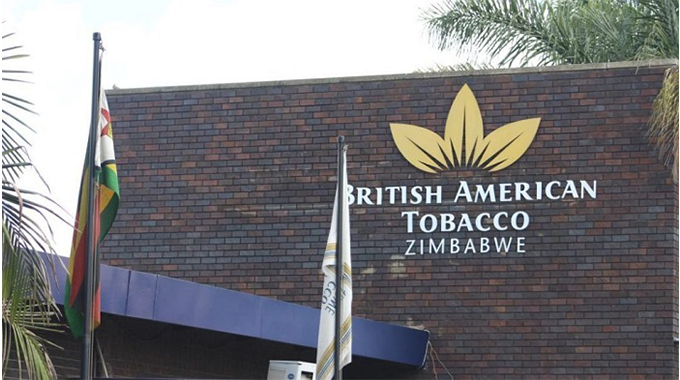BAT records $894m tax contribution

Oliver Kazunga, Senior Business Reporter
LISTED cigarette manufacturer, British American Tobacco (BAT) Zimbabwe, says its tax contribution grew by 785 percent to $894 million in 2020 from $101 million in 2019.
The company contributes to the Treasury through various taxes including excise duty, corporate tax, Value Added Tax, customs duties, Pay as You Earn and withholding tax.
In a statement accompanying BAT Zimbabwe financial results for the year ended December 2020, the firm said the key contributors of the increase in tax were excise duty and corporate tax.
“The company’s contribution to the Zimbabwe Revenue Authority (Zimra) in taxes increased from ZW$101 million in 2019 to ZW$894 million for the year ended 31 December 2020,” it said.
“The key contributors of the increase in tax were excise duty and corporate tax driven by the increases in selling price of our products and the profit generated before taxation.”
During the year under review, operating profit increased by $282 million versus an operating loss of $26 million recorded in 2019.
Net profit attributable to shareholders for the period under review was $61 million compared to a net loss of $124 million in 2019, recording a growth of 149 percent.
However, total sales volumes for the year declined by 12 percent compared to the previous financial year. During the period under review, BAT Zimbabwe’s premium brand, Dunhill, returned to the market in March as the company was now able to import the brand.
As a result, it recorded a significant increase in volume growth of 1 481 percent versus that achieved in 2019
“In the aspirational premium segment (Dunhill Kingsgate and Dunhill Newbury), volumes declined by 45 percent.
“In the value for money segment, (Madison and Everest) and low value for money brand (Ascot), volumes declined by eight percent and 47 percent respectively.
“This reduction in sales volumes was driven by shrinking consumer disposable incomes due to the challenging economic environment and the Covid-19 pandemic’s impact on sales,” it said.
Despite the drop in volumes, BAT Zimbabwe’s revenue increased by $597 million or up by 40 percent when compared to 2019 driven by price increases as well as revenue generated from the export of cut-rag tobacco.
The two revenue generating streams resulted in a gross profit increase of $18 million or a growth of two percent when compared to the same period in 2019. “Selling and marketing costs increased by $149 million which was 118 percent higher in comparison to the same period in the prior year.
“This was mainly driven by additional marketing investments and strategic initiatives, which were implemented by the company so as to respond to, and, to satisfy the consumer preferences.”
During the period under review, the firm’s administrative expenses were $204 million (156 percent) higher than the previous year, driven by a general increase in costs.
Other losses increased by $106 million (39 percent) due to the devaluation of the local currency and foreign exchange losses on foreign creditors.
Cash utilised from operations was $30 million compared to $80 million in 2019 due to a significant increase in trade and other payables, and, inventories due to tobacco purchases for the cut-rag tobacco export business.
“As a result of the economic challenges, the board has not declared a dividend for the year ended 31 December 2020 to allow for reinvestment into the operations of the company,” said BAT. — @okazunga.











Comments